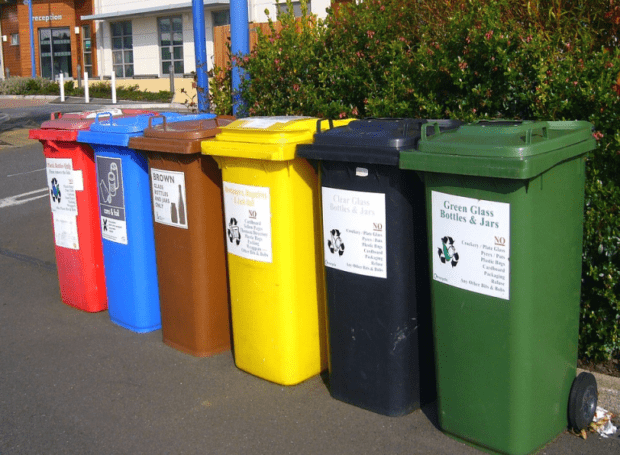The US Produces the Most and Recycles the Least out of All Developed Countries

The USA is a huge country, both in terms of its population and its size. So, it shouldn’t come as a surprise that it produces a lot of waste and garbage. But what is surprising is the fact that America recycles least out all developed countries in the world. Yes, that’s right! According to a new study by Verisk Maplecroft, the US recycles less than half of the waste it produces. This statistic is staggering considering the technology and infrastructure, the US has at its disposal.
Things are not looking too good in England as well, in this regard. According to Big Ben, one of London’s top garbage disposal companies, Britain is facing a similar garbage crisis as America. Numerous problems are being caused due to this such as land and water pollution. It is damaging the environment and various ecosystems.
Let’s talk Facts and Figures
Talking specifics will give us a clearer picture of exactly how bad the garbage crisis in America is. For starters, America makes up 4% of the world’s population and produces 12% of the world’s waste materials. You can clearly see that the population to garbage ratio in the US is disproportionate, in a negative way.
Americans produce a staggering 773kg of waste per head, each year. On the other hand, the most populated countries in the world, China and India, have a better ratio, in this regard. When the two are combined, they make up 36% of the world’s population, but generate just 27% of the world’s waste. The global average of recycling isn’t that well too. The whole world recycles around 16% of the waste it produces.
If we look at the developed nations of the world, the US is one of the few whose waste generation overshadows its recycling capacities. The most efficient country in this regard is Germany who manages to recycle approximately 68% of its waste materials.
US environment officials have claimed that they have modern and efficient means for waste disposal, so recycling waste isn’t a problem. The primary issue is the sheer amount of waste produced in the country. It seems to be too much for the recycling infrastructure to manage effectively and efficiently.
The fact that China has banned waste imports has also been a big blow to America, as they used to ship a notable portion of their waste to China before. China and many other Asian countries have made it clear that they do not want to be the world’s “Dumping Ground” anymore. It is interesting to note this attitude, as it was not prevalant before.
The recent generation of Asians have clearly been more aware of environmental issues. They have protested the import of waste materials in their countries, and as a result their governments have been prompted to revise their policies. A significant amount of waste in America is being disposed by burning it, and that is not an environmentally clean method.
Climate Change
Climate Change is undoubtedly one of the biggest environmental issues that we face nowadays. Plastic waste materials are a big factor that contribute to this ongoing climate crisis. The USA, in particular, has been accused by various international parties, for acting as a hindrance in the international efforts towards limiting plastic waste.
For example, the USA did not agree upon a recent Global Agreement that aimed to stop the proliferation of low-quality plastics. The USA is a definitely a world leader and its actions do impact the rest of the world. If it takes charge in standing up for effective waste disposal, many other countries around the world might follow suit.
Conclusion
One things for sure, the abundance of waste is a global environmental problem and it is damaging our world, in various ways. Prompt and effective action needs to be taken, or else there will be dire consequences for nature and the environment.
Developed countries like the USA and the UK have a potentially huge role to play in this endeavor. Reforms are needed in their waste disposal policies. This domain area needs more attention than ever before. World leaders cannot afford to neglect it.
